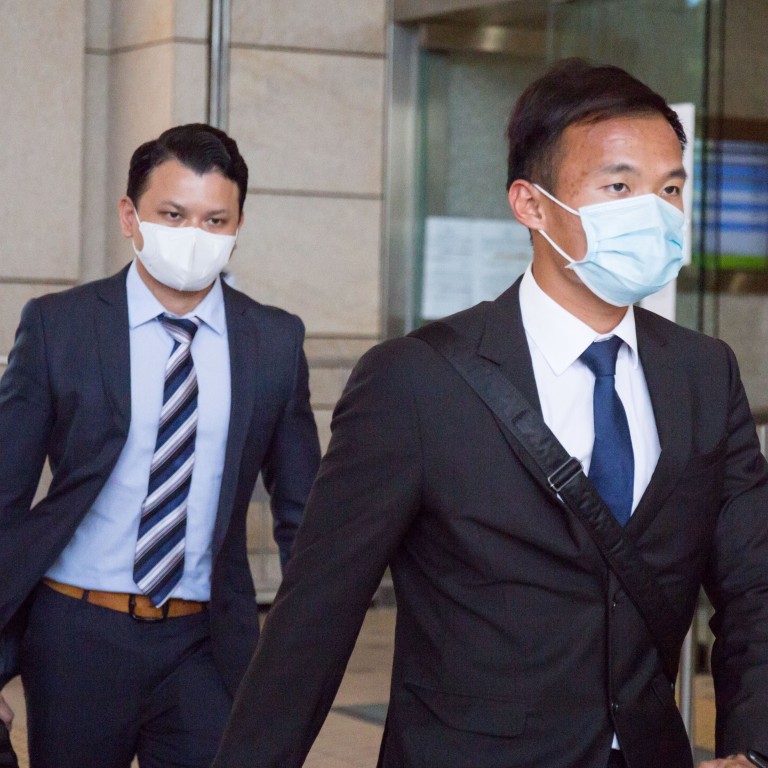
Coroner says another witness may be necessary to resolve timeline discrepancies in inquest into Hong Kong protester’s death
- Police officers testifying in the inquest acknowledge the potential for inaccuracies in the times they gave for various actions
- Coroner Ko Wai-hung says court may need to hear evidence from the police officer responsible for timing others’ actions that night
Police had fired five tear gas rounds from an adjacent street into the car park of Sheung Tak Estate – where anti-government protesters had gathered – with at least one round entering the upper floors of the structure in which an unconscious Chow was later found, the court was told on Thursday.
Officer says he prioritised dispersing radicals over securing timely treatment of injured
It remains unclear whether Chow’s apparent accident was related to the police operation, as CCTV footage did not fully capture his fall or the events preceding it.
Constable Yim Cheuk-fan, who was an acting sergeant last year, said he shot a round of tear gas at the second floor of the car park at 1.09am in an attempt to disperse more than 10 radical protesters inside the building who had hurled traffic cones and other hard objects at officers.
News footage by i-Cable TV, however, showed the time of that shot as being 1am. At about that time, Chow was spotted by CCTV cameras at the other end of the car park.
Asked about the nine-minute difference, Yim said he had only learned of the time of his shot from the commanding officer after the operation was over.
The commanding officer would determine the chronology of events in a debriefing session, based on information provided to him by another officer responsible for recording action times during an operation, he said.
Inspectors in charge of clearance operation deny pursuing student who fell inside car park
But Yim acknowledged he did not make a habit of noting down the precise minute each time he used his weapon. “I did not have time to look at my watch and mark down the time,” Yim said. “I don’t know why [there was a discrepancy].”
Policewoman Yeung Lok-yan, who fired seven tear gas rounds during the operation, said she did note the time of each shot she fired, but acknowledged she was not sure if these were accurately recorded in the debriefing session.
She added that she would not have bothered to correct an inaccurate time even if she knew the record was wrong.

Constable Fong Chun-kwok, who fired four tear gas rounds at protesters outside the car park, also admitted that what he told the court about the time of his shots was an “estimation”, even though he knew he had a duty to mark down the time of his movements.
He also said his team did not synchronise their watches before an operation, making it possible that two officers could give different times for the same action.
Coroner Ko Wai-hung said the court might need to hear evidence from the officer responsible for timing the others’ actions that night.
“The police’s times for the events were obviously incorrect,” Ko said.
Chow, a Year Three computer science student at Hong Kong University of Science and Technology, died in hospital four days after the November 4 protest.
The hearing continues before Ko and a five-member jury on Friday.
